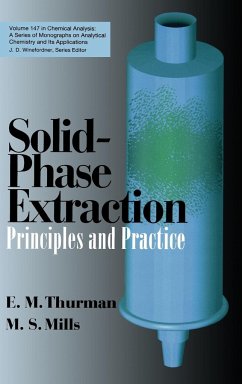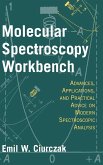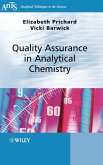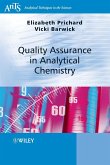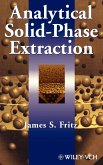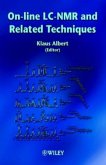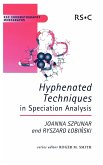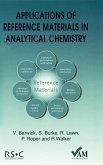Solid-Phase Extraction (SPE) offers accessible, up-to-date coverage of every aspect of this tremendously useful separation tool, from how it works and where it works to recent advances in equipment and techniques. Divided into three main parts, the book begins with a clear explanation of basic SPE concepts--including theory, chemistry, and mechanisms of interaction as well as methods development, troubleshooting, and optimization. The next section presents an in-depth look at SPE applications, with separate chapters devoted to clinical, environmental, and natural product chemistry. Numerous examples drawn from each of these three areas illustrate SPE in action in the real world, successfully bridging the gap between principles and practice. The final section of the book discusses the latest SPE technology, with detailed coverage of the automation process, solid-phase extraction disks, and innovations such as solid-phase microextraction and small-volume solid-phase extraction. Suggested reading and references are included throughout, providing a useful springboard for further research and study. Whether you are new to SPE or are looking to keep abreast of the newest developments in SPE methods and uses, Solid-Phase Extraction gives you instant access to the information you need--an essential companion for chemists of all types who use SPE in their work. Complete coverage of SPE concepts and applications--at your fingertips Solid-Phase Extraction (SPE) equips chemists in any field with an incomparable one-stop source of up-to-date information on SPE. With sections devoted to fundamental principles, applications, and new technology, it is both comprehensive and easy to use--the ideal working reference on this important subject. * Presents a straightforward examination of SPE theory, methods development, chemistry, and mechanisms of interaction * Provides detailed coverage of SPE applications in clinical, environmental, and natural product chemistry * Features practical examples illustrating a range of real-world SPE uses * Prepares chemists to make informed decisions on sorbent selection * Covers the latest SPE technology, with valuable insights on automation and new sample preparation methods * Offers suggestions for further reading, Internet resources, and product guides
Hinweis: Dieser Artikel kann nur an eine deutsche Lieferadresse ausgeliefert werden.
Hinweis: Dieser Artikel kann nur an eine deutsche Lieferadresse ausgeliefert werden.

